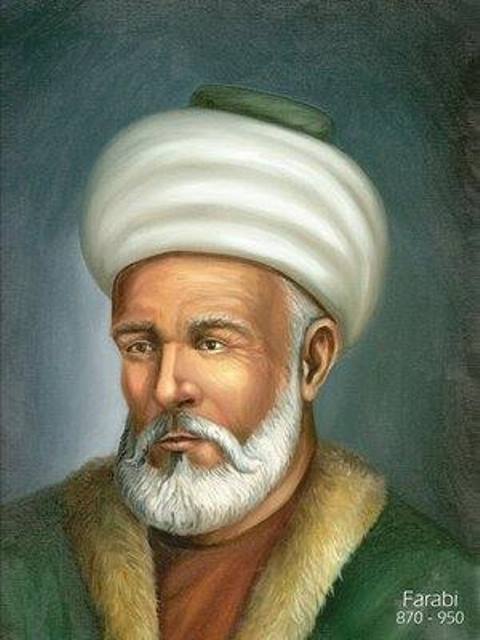Visiting Professor to Spell Out Muslim Impact on Philosophy

Abu Nasr Alfarabi
Follow us on Twitter: @BaylorUMedia
Media contact: Terry Goodrich, (254) 710-3321
WACO, Texas (March 3, 2015) – David DiPasquale, Ph.D., visiting assistant professor in the department of political science and Islamic civilization and societies program at Boston College, will share his lecture "Alfarabi in Thirty Words: An Introduction to his Philosophy of Plato and Aristotle" from 4:30 p.m. to 6 p.m. Thursday, March 5, in the Cox Lecture Hall of Armstrong Browning Library.
"The way in which Plato was understood was significantly influenced by Alfarabi. Alfarabi rediscovered political philosophy in Plato," said Timothy Burns, Ph.D., professor of political science and graduate program director.
Abu Nasr Alfarabi is credited for instilling the tradition of philosophy within Islamic culture. Often referred to as the "Second Teacher" (after Aristotle), Alfarabi is regarded by his Muslim and Jewish successors, as the greatest philosophy figure after the death of Aristotle. His main areas of study were logic and political science. Alfarabi's efforts to preserve this understanding of Greek philosophy prevented its extinction amid century-long movements of Middle and Neo-Platonism.
DiPasquale's lecture will unlock Alfarabi's view of Plato as a political philosopher rather than a theologian by examining Alfarabi's three-part work "The Philosophy of Plato and Aristotle" and the 30 Arabic words that comprise its titles.
"We in the West tend to forget that philosophy and science were the same thing until the 16th century. Both were lost to the West for 500 years, after the destruction of the Roman empire, and only re-entered Europe through the conquest of Spain by the Moors in the 9th to 12th centuries. At that time, in towns like Toledo, Christian, Jewish and Muslim scholars lived side by side," Burns said.
"The Moors brought philosophy back to Europe, and through the translations from the Greek into Latin, Aristotle and eventually Plato came back into Christian thought. That wouldn't have happened if Plato's and Aristotle's works had not been preserved by the Islamic East. Our students don't often have the opportunity to hear from someone who's an expert in Islamic political philosophy," Burns said.
While earning his Ph.D. at Harvard University, DiPasquale was the last student to study under Muhsin Mahdi, the world's foremost expert on political philosophy in the Muslim world. DiPasquale teaches courses on Islamic political thought, the history of Islam, medieval Jewish and Christian political philosophy, and the current debates over Islam and the Western liberal traditions.
Burns was at a National Endowment for the Humanities institute on Islamic, Jewish and Christian political philosophy this past summer, at which he heard DiPasquale's name many times.
"I had done a little bit of work in Christian political philosophy, and a little in Islamic and Jewish political philosophy, but the NEH conference was very intriguing and eye-opening for me. DiPasquale's recently completed translation of and commentary on the entire newly revised Arabic text Alfarabi's Kitab al-Jadal, for Cambridge University Press, is being very eagerly anticipated. This is the first time the work has ever been translated into English," Burns said.
DiPasquale will speak first at The University of Texas at Austin and later at The University of Dallas.
"This is the third of five lectures that we are doing in conjunction with those two universities," Burns said. "It has been a wonderful opportunity for us, by sharing resources, to attract speakers who might otherwise not be available for our students to hear." He added that the he hoped in the future to expand the collaboration and eventually to create a consortium in order to build more opportunities for students of political philosophy to study with scholars at the three schools.
The lecture will be hosted by Baylor's Political Science Department. The event is free and open to the public, but registration is necessary.
Armstrong Browning Library is located at 1416 S. Third St. in Waco.
Please register for attendance at Baylor ISR Events Calendar
by Sarah Czerwinski, student newswriter, (254) 710-6805
ABOUT BAYLOR UNIVERSITY
Baylor University is a private Christian University and a nationally ranked research institution, characterized as having "high research activity" by the Carnegie Foundation for the Advancement of Teaching. The University provides a vibrant campus community for approximately 16,000 students by blending interdisciplinary research with an international reputation for educational excellence and a faculty commitment to teaching and scholarship. Chartered in 1845 by the Republic of Texas through the efforts of Baptist pioneers, Baylor is the oldest continually operating University in Texas. Located in Waco, Baylor welcomes students from all 50 states and more than 80 countries to study a broad range of degrees among its 12 nationally recognized academic divisions. Baylor sponsors 19 varsity athletic teams and is a founding member of the Big 12 Conference.